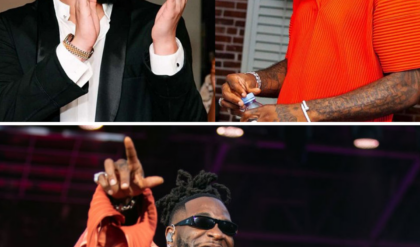Indiana Fever guard Caitlin Clark has found herself in controversy, yet it is not her fault. Any action involving the former college basketball superstar and recent No. 1 overall pick in the WNBA draft inevitably results in unprecedented discussion that does not revolve around basketball.
Clark became a national icon after the 2023 NCAA National Championship, during which Clark and Iowa lost to LSU. In the loss, Clark, the national player of the year, scored 30 points, including eight three-pointers. The game sparked a rivalry between Clark and LSU star forward Angel Reese, who would go No. 7 to the Chicago Sky in the same draft as Clark.
The match between LSU and Iowa was the most viewed women’s college basketball tournament game ever, averaging 12.3 million viewers on ESPN. With many new eyes on women’s basketball, the first instance of competitive spirit was Angel Reese pointing at her empty ring finger and the “you can’t see me” hand gesture toward Clark after LSU defeated Iowa 102-85.
Reese’s taunting towards Clark incited anger among internet users. On X, Barstool Sports CEO Dave Portnoy called Reese a “classless piece of s—,” despite the fact Clark did a similar taunt two games prior. Why were people upset about the common occurrence of two rivals talking some smack? Many fans are still reluctant to watch the WNBA. On top of that, those same fans aren’t used to watching their favorite player, Clark, lose. This makes the media coverage seem more overt, leading to a strong wave of emotion and the need to defend her.
Also, there is the undeniable race aspect of the 2023 National Championship game and Clark’s debut in the WNBA.
Iowa’s team was made up of almost all white women. LSU was almost all black women. Considering the history of racism in America, it is easy to imagine people who have no investment or interest in women’s basketball having an easy time picking a side.
Even the White House visit that various championship-winning teams take was different. First Lady Jill Biden said, “I know we’ll have the champions come to the White House, we always do. So, we hope LSU will come,” Biden said. “But, you know, I’m going to tell Joe [Biden] I think Iowa should come too because they played such a good game.”
Typically, the losing team does not visit the White House.
Secondly, the most famous players in the WNBA are often white, disproportionate to the 63.8% of WNBA players who identify as black. Clark recently signed a signature shoe deal worth 28 million dollars with Nike. Of the six active WNBA players with a signature shoe deal, five are white.
Of course, this is not to discredit Clark’s earned popularity via her talent and persona. Clark is an easy player to like and is one of the best players in the game. I think most people would call her entertaining to watch. In my opinion, she looks more like Steph Curry than anyone with how she moves, shoots off the dribble and shoots from deep. However, Clark’s race is often not separated from her play on the court.
After an incredible final year at Iowa in which Clark broke the record for most career points in college basketball history, Clark declared for the WNBA draft. Before the draft, one of the most legendary players in women’s basketball history, Diana Taurasi, said that “Reality is coming” for Clark.
“[Clark] looks superhuman playing against some 18-year-olds but [she’s] going to come play with some grown women that have been playing professional basketball for a long time,” Taurasi said.
The sports world was up in arms about Taurasi’s comments. People on X claimed Taurasi was bitter and jealous of Clark’s quick rise in popularity. However, Taurasi was completely correct. In Clark’s WNBA debut, she scored 20 points but also had 10 turnovers and scored less than 10 points in her second game for the first time since her first year at Iowa.
The WNBA includes only 12 teams. Each team includes many former college stars. Therefore, the talent disparity between college and the jump to the WNBA is often difficult, explaining why only 20 of the 36 rookies even made the opening day roster for their respective teams.
Despite Taurasi’s prediction coming true, it did not last long as Clark started playing well.
The Fever finished the month of May 1-8 but has played all of those games in a span of only 16 days — an exhausting start to Clark’s career. However, Clark still won Rookie of the Month and led all rookies by averaging 17.6 points, 6.6 assists and 5.1 rebounds per game.
Clark’s next game came against the Chicago Sky and Reese. With 16 seconds left in the third quarter, Sky guard Chennedy Carter scored on Clark and proceeded to shove Clark over as the Fever tried to inbound the ball. Carter’s foul was later upgraded to a flagrant-1 foul two days after the game.
The prevailing sentiment is that Clark is the “golden goose” of the WNBA. Yes, the league has seen unprecedented growth. Since the league’s creation, it has lost at least $10 million every year. However, even with the increased attention and viewership this year, the league is on pace to lose $50 million.
The nail in this conversation was that Clark was not selected to Team USA for the upcoming Paris Olympic Games. Although Clark is at the “top of the alternates list” and missed Team USA’s training camp due to her playing in the final of the NCAA tournament, former presidential canidate Nikki Haley said that the Olympic selection committee should be asked, “Do we want the best team to represent our country or not?”
If the answer is yes, then Clark does not deserve to be on the team. However, that is not to say that Clark has done poorly in her short amount of time in the WNBA. Clark averages the same number of points, slightly more rebounds and the same field goal percentage as Taurasi. The caveat is that Taurasi is arguably the greatest women’s basketball player ever and averages those numbers at 42 years old.
The counterpoint that Clark would make people care about Team USA if she was on it is valid. However, the idea that her simply playing on the team would drive revenue and viewership is not true, because this assumes that Clark will see the floor for the majority of the playing time.
The women’s team podiums every Olympic Games and blows out a lot of opponents as well, so Clark would likely play some garbage time minutes. But in terms of valuable playtime, there’s no chance Clark would see the court. Clark-centric viewers would turn the game on, see Clark isn’t playing, and turn the game off.
Why is all this discussion about Clark that has nothing to do with the story of the WNBA season? Unfortunately for Clark, she’s become a symbol in the never-ending culture war of America. She is an incredible athlete that people would rather talk about than watch.
When LeBron James came into the NBA straight out of high school, he had a similar amount of hype. James’s teammates downplayed his abilities. Cleveland Cavaliers forward Carlos Boozer said, “We already have players better than [James] on our team at his position.”
This intra-team jealousy is nothing new to the sports world. Hotshot rookies come into their professional league all the time with veteran push back. With Clark, everyone refuses to take a deep breath and realize that she is already strong, and all the attention — both good and bad — will only make her stronger.





